- Home
- Best Pet for Me
- Degus as Pets
Degus as Pets: Playful and Lively But There Are Restrictions
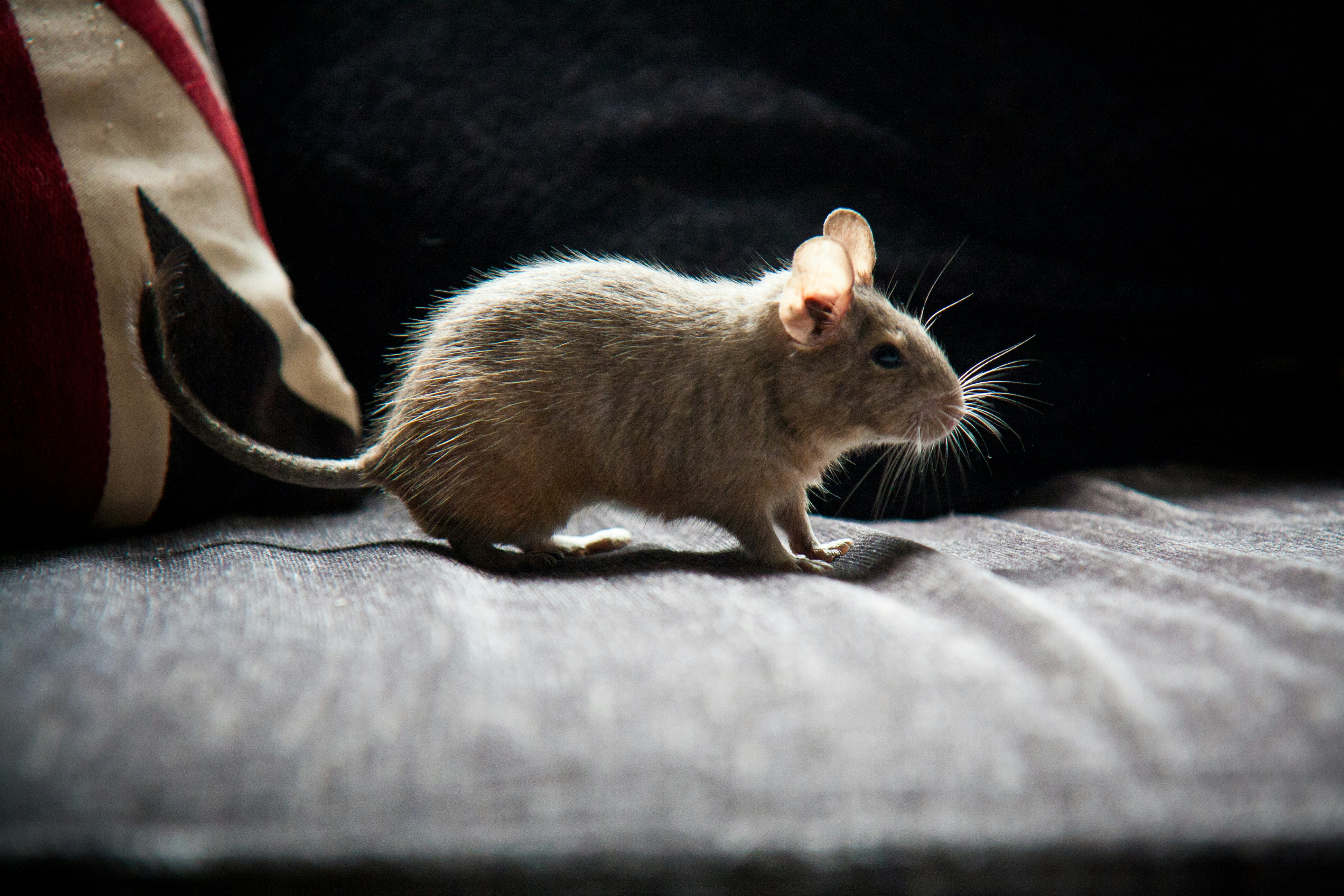 Photo by Sarah Broady on Unsplash
Photo by Sarah Broady on UnsplashDegusas pets are fascinating creatures that share a family lineage with both chinchillas and guinea pigs, all of which hail from South America. Specifically, degus are native to the semi-arid regions of Chile, where they have adapted to the rugged terrain and unique climate. Known for their curious and social nature, degus have recently gained popularity as exotic pets. However, their domestication and use as pets have only become widespread in recent decades. These small, diurnal rodents make interesting companions, with their playful antics and lively interactions.
That being said, it's important to approach owning degus as pets with caution. Due to their unique characteristics and potential for environmental impact, degus are considered an invasive species in some parts of the United States. In fact, they are illegal to own in several states, including California, Utah, Georgia, Alaska, and Connecticut. If you're considering adopting degus as pets, it's crucial to research the pet laws in your area and ensure that you're abiding by local regulations. While degus can make wonderful pets for the right owner, ensuring that they are legally allowed in your state is the first step to ensuring a responsible and rewarding pet ownership experience.
Creating the Perfect Habitat for Your Degu: Space, Comfort, and Safety
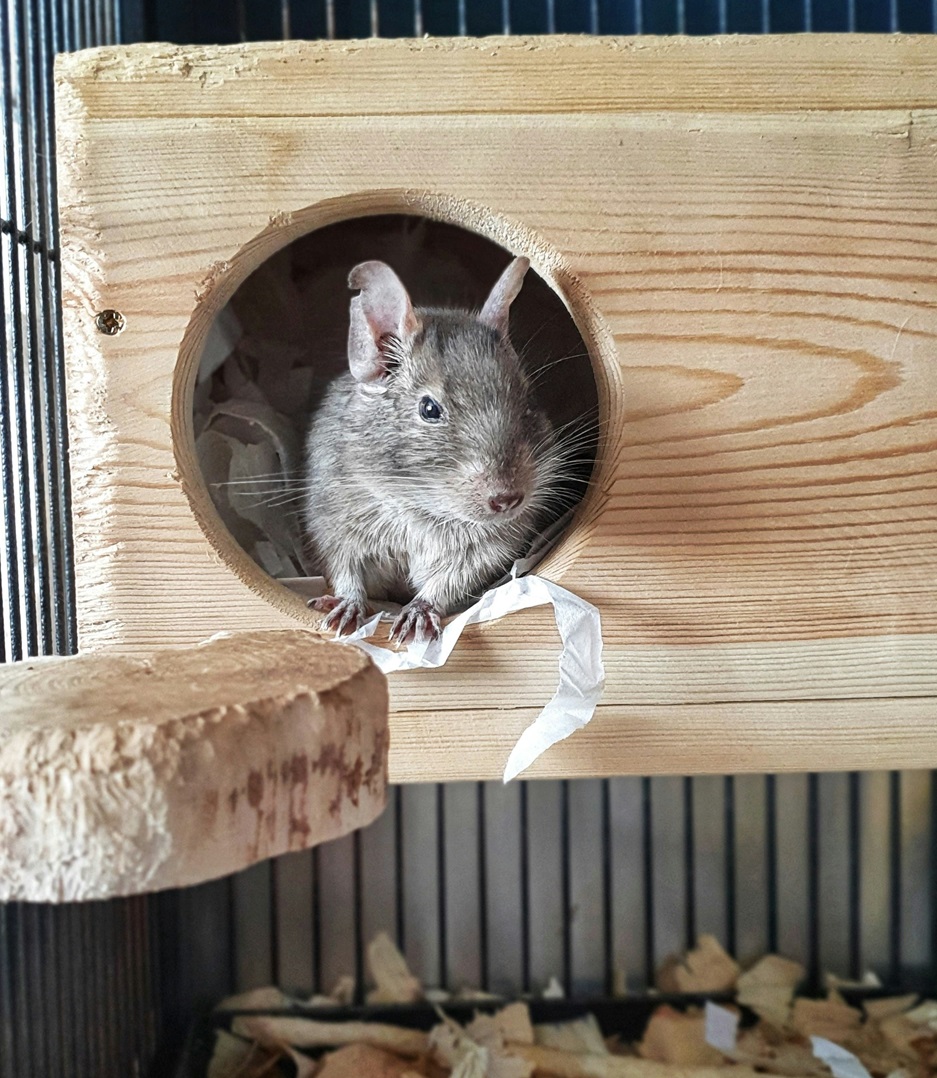 Photo by Sarah Broady on Unsplash
Photo by Sarah Broady on UnsplashDegus as pets are highly active and social creatures that require plenty of space in their living environment. When setting up their cage, it’s essential to remember that they need room to run, climb, and even burrow, as this behavior is instinctual for them. The minimum size for a cage housing two degus should be 24 inches by 18 inches by 18 inches, but the more space you can provide, the better. A larger enclosure will give them more freedom to explore, exercise, and play, which is critical to their overall health and happiness.
A wire cage with a solid bottom is generally a good choice, as it allows for proper ventilation and is easy to clean. However, be mindful that degus are notorious for chewing through certain materials. They can quickly gnaw through plastic or wooden cages, so make sure to opt for a sturdy cage that won’t easily succumb to their chewing habits. Additionally, since birds are their primary predators in the wild, it's important to have a secure roof on their cage to prevent any unwanted dangers from above.
Degus are social creatures that feel safe and comfortable in spaces where they can hide, nest, and rest undisturbed. Be sure to include dark hideaways, nesting boxes, and bedding in their cage. This will give them places to retreat to when they need privacy or relaxation. Adding branches to climb on, ramps, and different levels within the cage will also keep them engaged and provide them with an opportunity to explore their environment fully.
Temperature regulation is another crucial aspect of a degu's living conditions. Since degus are native to the warm climates of Chile, they thrive in temperatures ranging from 65 to 75 degrees Fahrenheit. They are highly sensitive to temperature fluctuations, so it’s essential to keep them away from drafts, direct sunlight, and heat sources. While they do enjoy warmth, they are also very susceptible to overheating and will become stressed if the temperature exceeds 80°F. Likewise, extreme cold temperatures should also be avoided, as they can lead to health problems. Keep their cage in a stable, temperature-controlled area where they can feel comfortable and secure.
Finally, be cautious when housing degus near other pets. Cats, dogs, or any other predators should be kept away from their enclosure. Degus can become stressed or fearful, affecting their well-being if they sense the presence of potential threats nearby. By creating a safe, secure, and stimulating environment for your degu, you'll ensure that they can live a long, happy life as a beloved member of your family.
Bedding Options For Degus as Pets: Make Sure Bedding is Safe andSupports Their Burrowing Habits
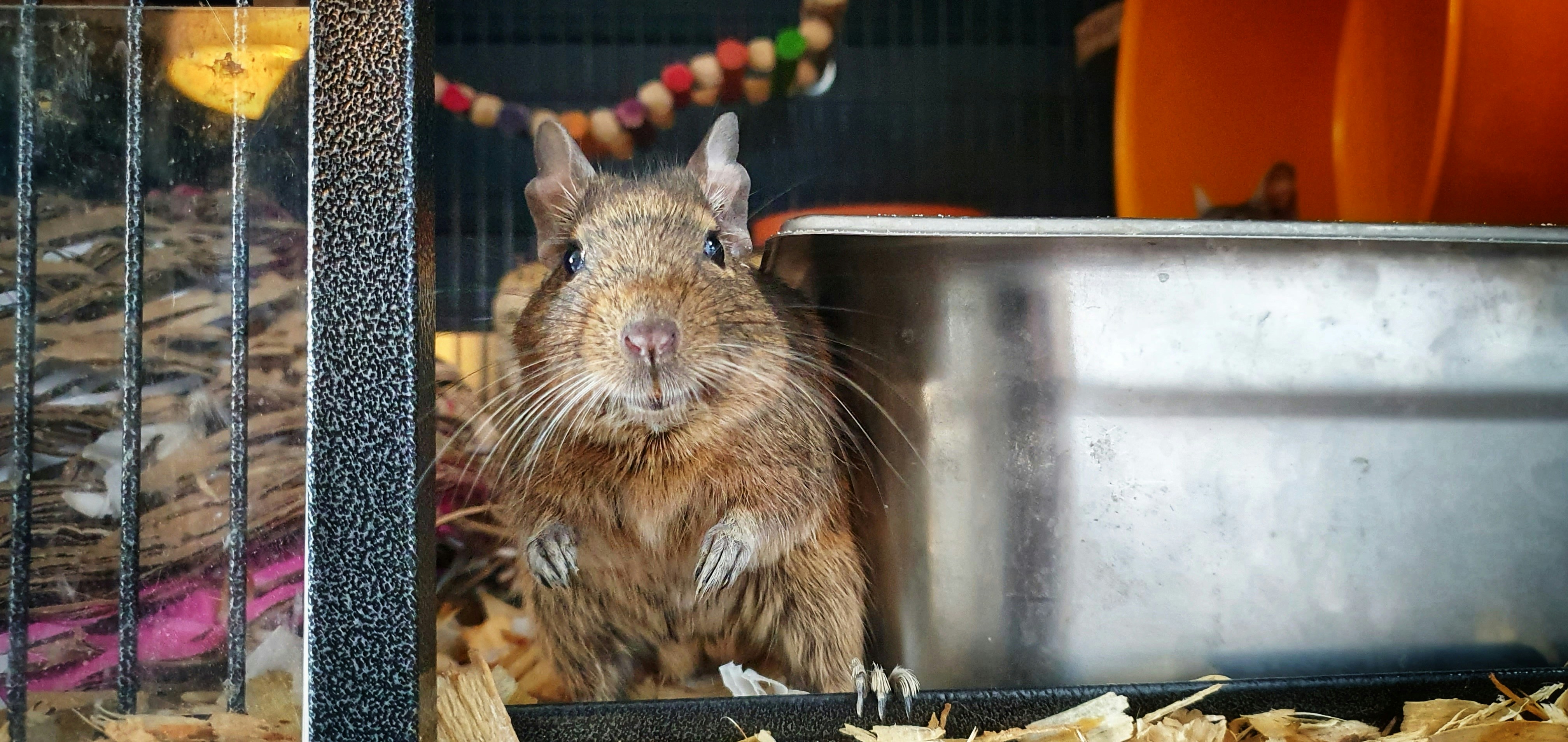 Photo by Sarah Broady on Unsplash
Photo by Sarah Broady on UnsplashWhen choosing bedding for degus as pets, it's crucial to avoid any materials that are dusty or contain harmful chemicals, as these can negatively affect their health. Dusty bedding, such as sawdust or certain types of wood shavings, can cause respiratory issues for degus, while bedding containing ink or chemicals can be toxic if ingested. For the safest option, paper bedding is considered ideal. Just be sure to choose a paper bedding that is free from toxic dyes and inks, as degus are prone to nibbling on anything in their environment. Paper bedding is absorbent, easy to clean, and provides a soft, comfortable surface for your pet to burrow in.
Additionally, avoid using materials like cotton or synthetic fabrics, as these can cause blockages if ingested. Always ensure that the bedding you choose supports your degu’s natural behaviors, such as burrowing and nesting, while maintaining a safe and clean environment for them. Keeping your pet’s cage well-maintained with clean, non-toxic bedding is essential for their well-being and will help prevent health issues in the long run.
Feeding and Caring for Your Degu: A Guide to Their Diet
Degus have specific dietary needs, and it's important to provide them with the right kind of food to keep them healthy and happy. You can feed your degus specially formulated pellets designed for them or, in some cases, pellets made for small pets in general. When serving their food, make sure to use a sturdy, non-tip bowl to prevent spills and keep their feeding area tidy.
A constant supply of high-quality hay is essential for your degu’s diet, as it helps with digestion, provides necessary fiber, and keeps their teeth from overgrowing. Fresh vegetables can be offered a couple of times a week, but it’s important to be cautious about the types of vegetables you provide. Degus are prone to developing diabetes due to their sensitivity to sugar, so avoid sweet vegetables such as sweet potatoes, carrots, or anything containing sugar or honey, like treats with molasses. Instead, focus on leafy greens like kale, dandelion greens, and parsley, which are safe and nutritious for degus.
Degus also have a tendency to bury their food, a natural instinct that helps them store it for later. While this is a normal behavior, it can make their cage dirty quickly, so be sure to clean their living space thoroughly after offering fresh veggies to maintain a hygienic environment. Keeping their diet sugar-free and their cage clean will help prevent health issues and ensure your degu leads a long, healthy life.
Sociability, Activity, and Toys
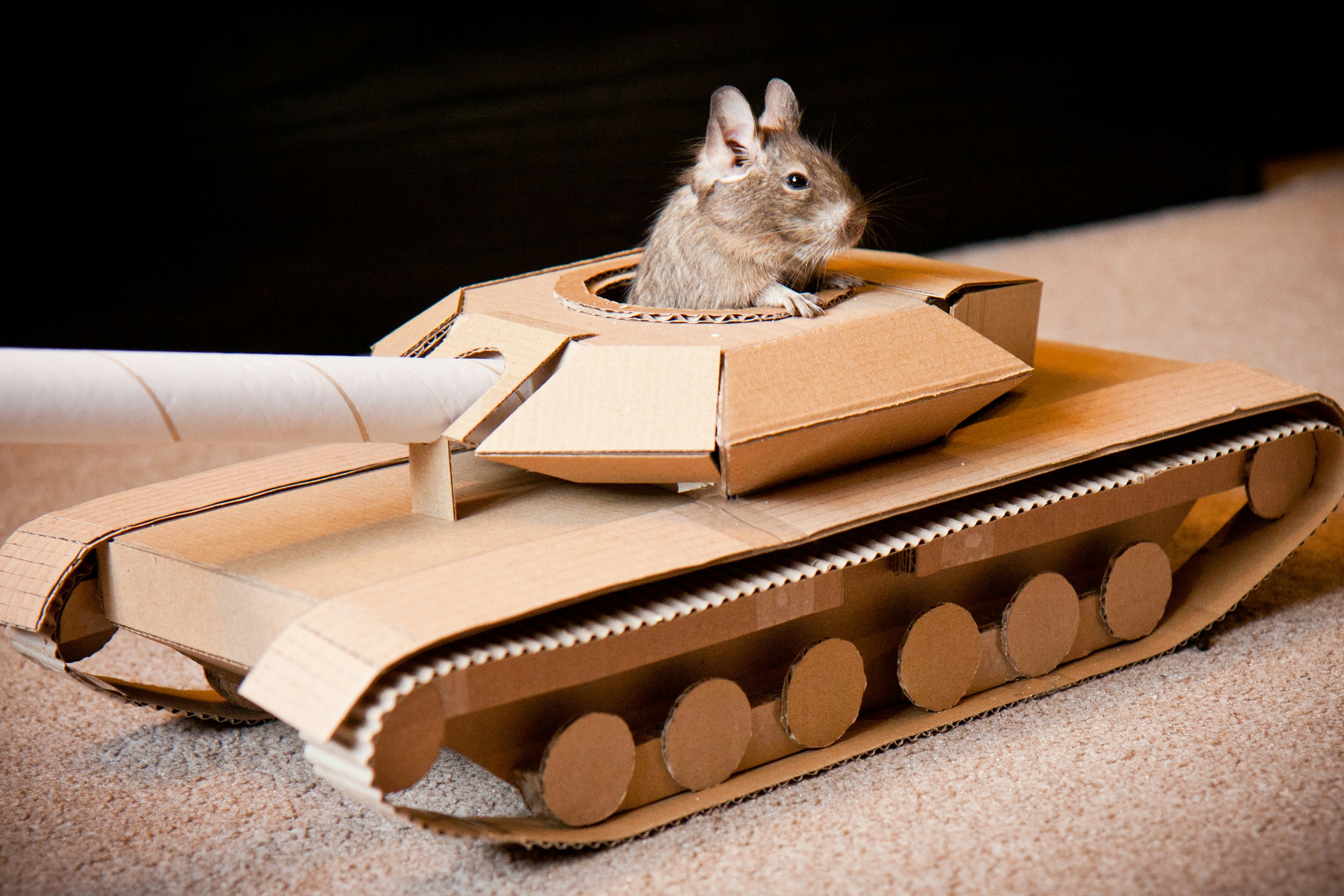 Photo by Sarah Broady on Unsplash
Photo by Sarah Broady on UnsplashDegus as pets are highly social animals that thrive in the company of others. They are naturally inclined to live in groups, and it’s recommended to keep them in pairs or small groups, with up to six degus living together happily. However, be cautious about mixing sexes, as male degus can become territorial and aggressive, especially if there are females around. Introducing a new degu into an existing group requires patience and careful management. Start by keeping the new degu in a separate cage, allowing them to see and smell each other. Gradually increase the amount of supervised time together, making sure that they adjust before allowing full interaction. Without sufficient social stimulation, degus can become aggressive or develop neurotic behaviors, so it’s important to meet their need for companionship and activity.
When it comes to enriching your degu’s environment, chewing is an essential part of their daily routine. Degus love to gnaw on wooden toys, which help them maintain their dental health. However, avoid plastic toys, as degus will chew through them quickly, potentially ingesting harmful materials. To make your degu’s living space more stimulating, provide degu-proof areas for them to explore, such as a playpen or a room with safe, chewable objects. A solid exercise wheel is also a great addition to help them burn off energy and stay active. PVC pipes are another favorite toy, providing a fun tunnel for your degu to run through.
As highly active creatures, degus as pets require ample space to move and explore. A flat-topped hiding spot is essential for them to feel safe and secure when they need a break. If you’d like to give your degu some exercise outside of the cage, a running ball can be a fun way to let them roam safely.
Degus can be trained to enjoy human interaction and handling, especially if handled gently and regularly. They tend to warm up to their human companions and will seek out petting once they feel comfortable. However, be cautious with their tails, as they are very sensitive and may fall off if grabbed or pulled. The tail will not regenerate, so it’s important to handle them with care.
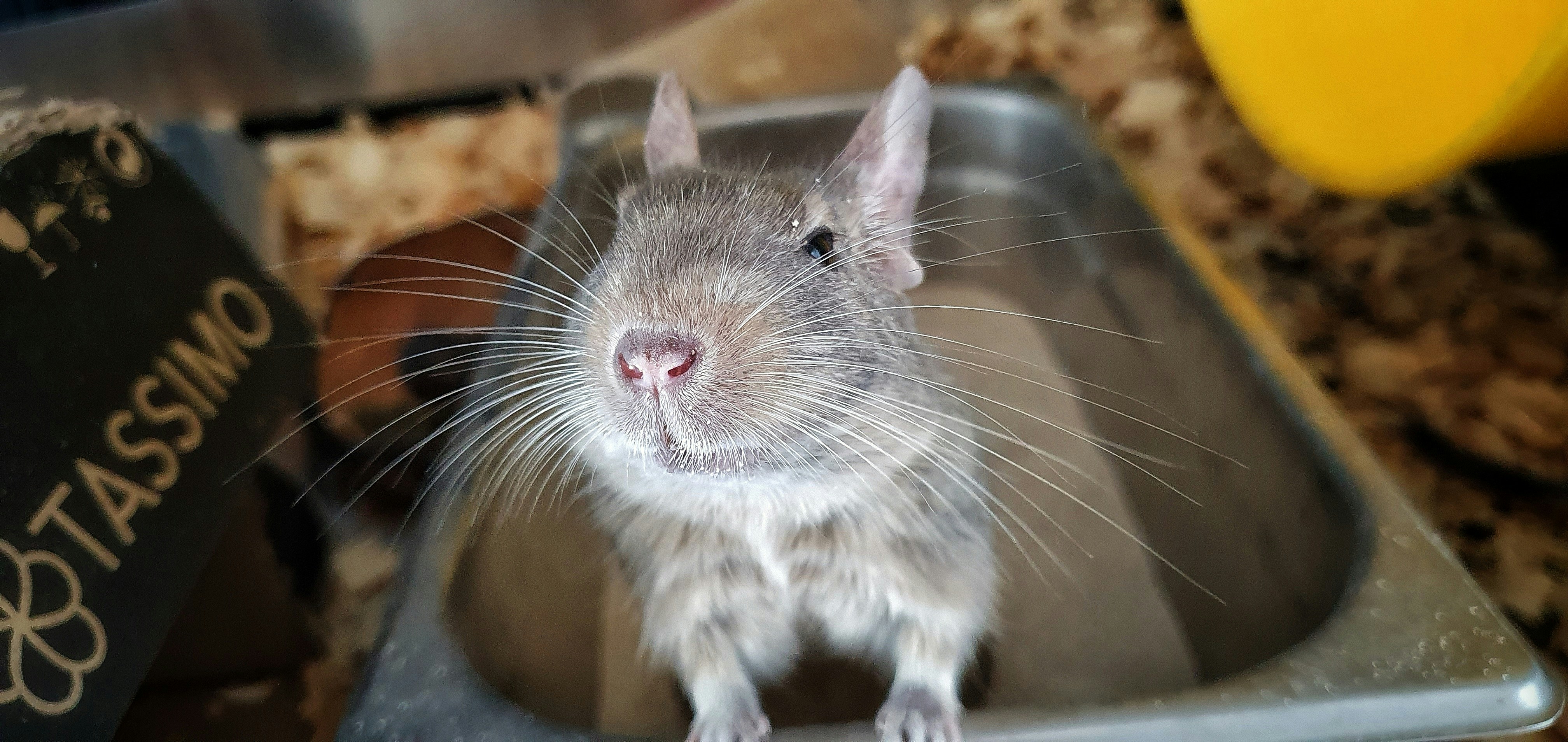 Photo by Sarah Broady on Unsplash
Photo by Sarah Broady on UnsplashUnlike many small pets that are nocturnal, degus are diurnal and active during the day. This makes them a great pet for observation, as you’ll be able to enjoy watching their lively behavior during daylight hours. They are generally quiet, making only soft whistles or chittering sounds when communicating with each other or when they feel content.
Another important aspect of degu care is their grooming habits. Like chinchillas, degus enjoy taking dust baths, which help keep their fur and skin healthy. Provide them with a small bowl of chinchilla dust a few times a week, allowing them about half an hour to roll around and clean themselves.
Overall, degus are active, social, and playful animals that require mental stimulation, social interaction, and a safe environment to thrive. Providing them with the right care and enrichment will ensure they live a long, happy, and healthy life as your delightful companion.
Size and Weight of Degus: Understanding Your Pet's Physical Characteristics
Degus are small, but their size and active nature make them fascinating pets to care for. Typically, they measure between 10 to 12 inches long, including their tails, which are a significant portion of their length. Their tails can be around 5-6 inches long, giving them a unique, balanced look that complements their energetic and social personalities. In terms of weight, degus usually fall between 6 to 11 ounces, making them lightweight yet sturdy enough to thrive in an active, interactive environment.
Despite their small size, degus are known for their high energy levels and curious nature. Their compact yet agile bodies are built for exploration and play, which is why providing them with a spacious and enriched environment is essential for their well-being. Whether you’re caring for one or a small group, understanding their size and physical needs will help you create the best possible habitat for your degu, keeping them happy, healthy, and active.
Life Expectancy and Health Considerations for Your Degu
Degus generally live for about 6 to 8 years, though some may live longer with the right care and attention. As with all pets, their health is key to ensuring they enjoy a long, happy life. It’s important to monitor their behavior and watch for any signs that might indicate health issues.
One of the most common health concerns for degus is diabetes. They are particularly sensitive to sugar and have difficulty processing it. If you notice that your degu is drinking excessively or urinating more than usual, these could be warning signs of diabetes. Early detection is crucial, so it's essential to stay on top of their diet and avoid foods that could trigger these issues, such as sugary fruits and sweet vegetables.
Degus are also prone to eye problems. Their eyes are quite sensitive, and they can develop conditions like conjunctivitis or other infections. Regularly checking their eyes and ensuring their living environment is clean can help prevent these issues.
Another common concern for degus is bacterial infections of the feet. These infections can occur if the cage environment isn’t kept clean or if they are exposed to damp conditions for too long. Ensuring that the cage has proper bedding and isn’t overly wet is important to maintaining their health.
Degus also tend to shed once a year, and during this period, you might notice an increase in loose fur. This is perfectly normal, and you can help by brushing them gently to keep their coat clean and remove any excess hair.
With proper care and regular health checks, you can ensure that your degu stays healthy and happy throughout its 6 to 8-year lifespan, potentially even longer. Always be attentive to any signs of health issues, and keep their environment clean and comfortable for the best results.






New! Comments
Have your say about what you just read! Leave me a comment in the box below.